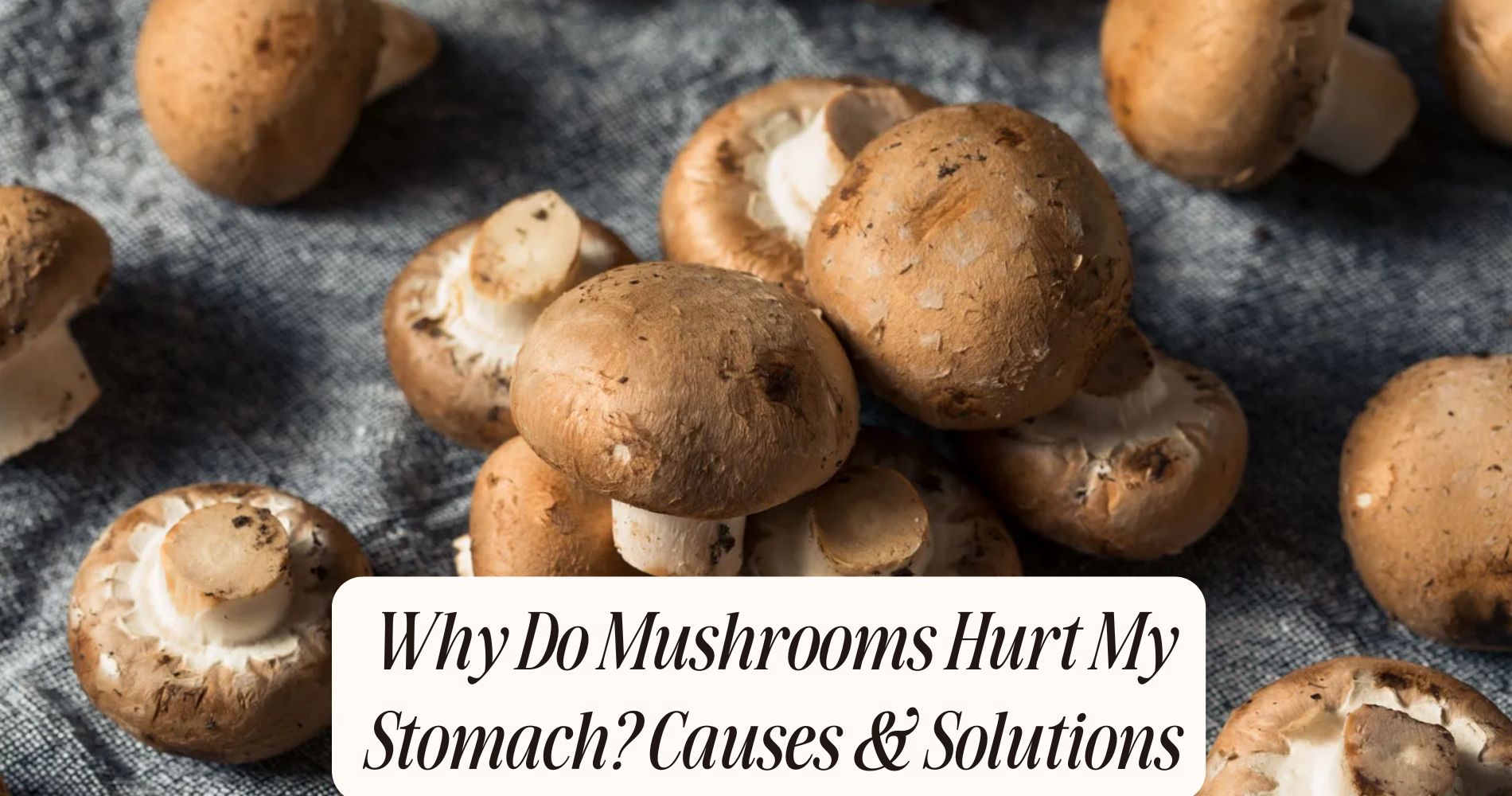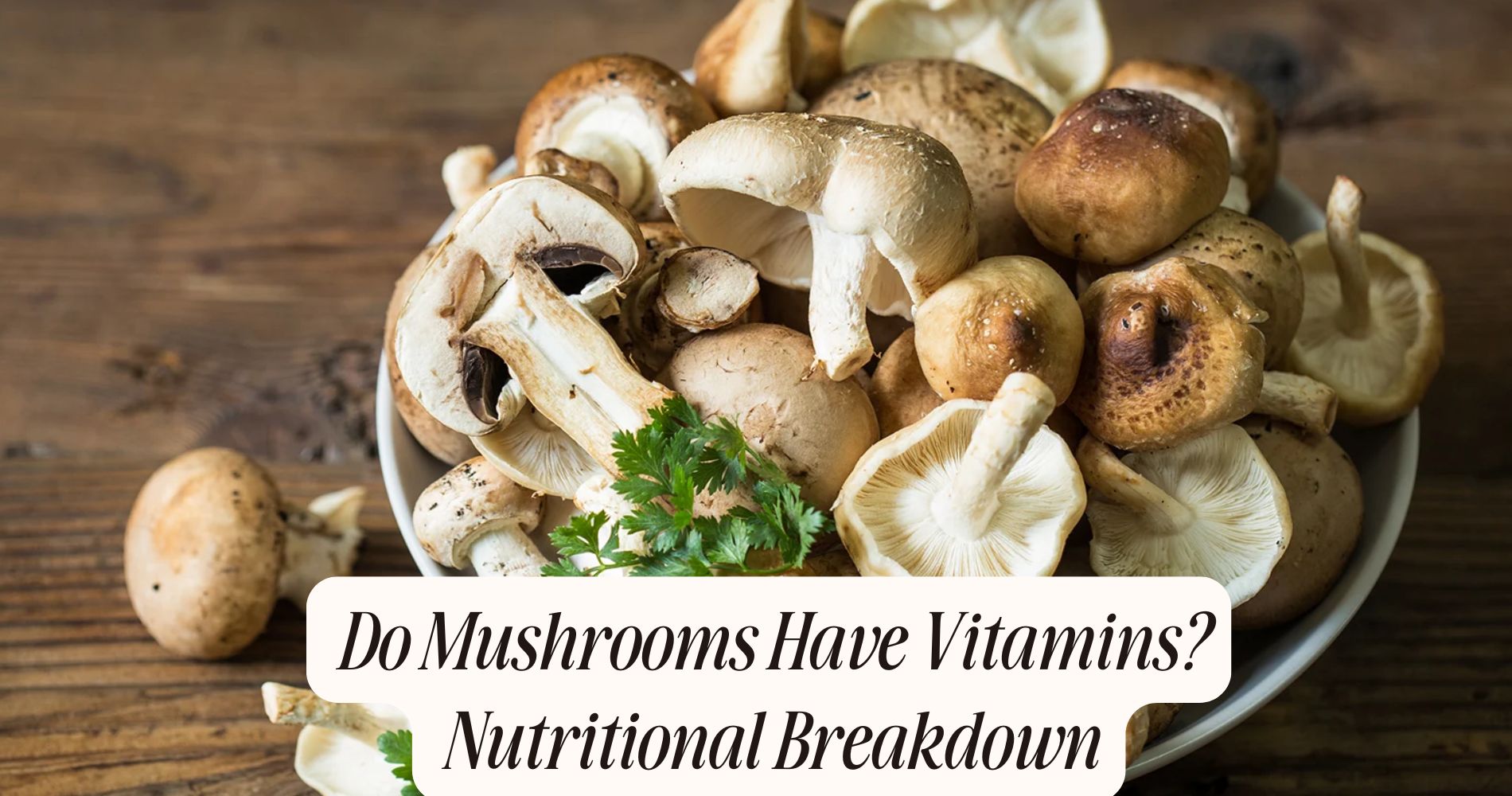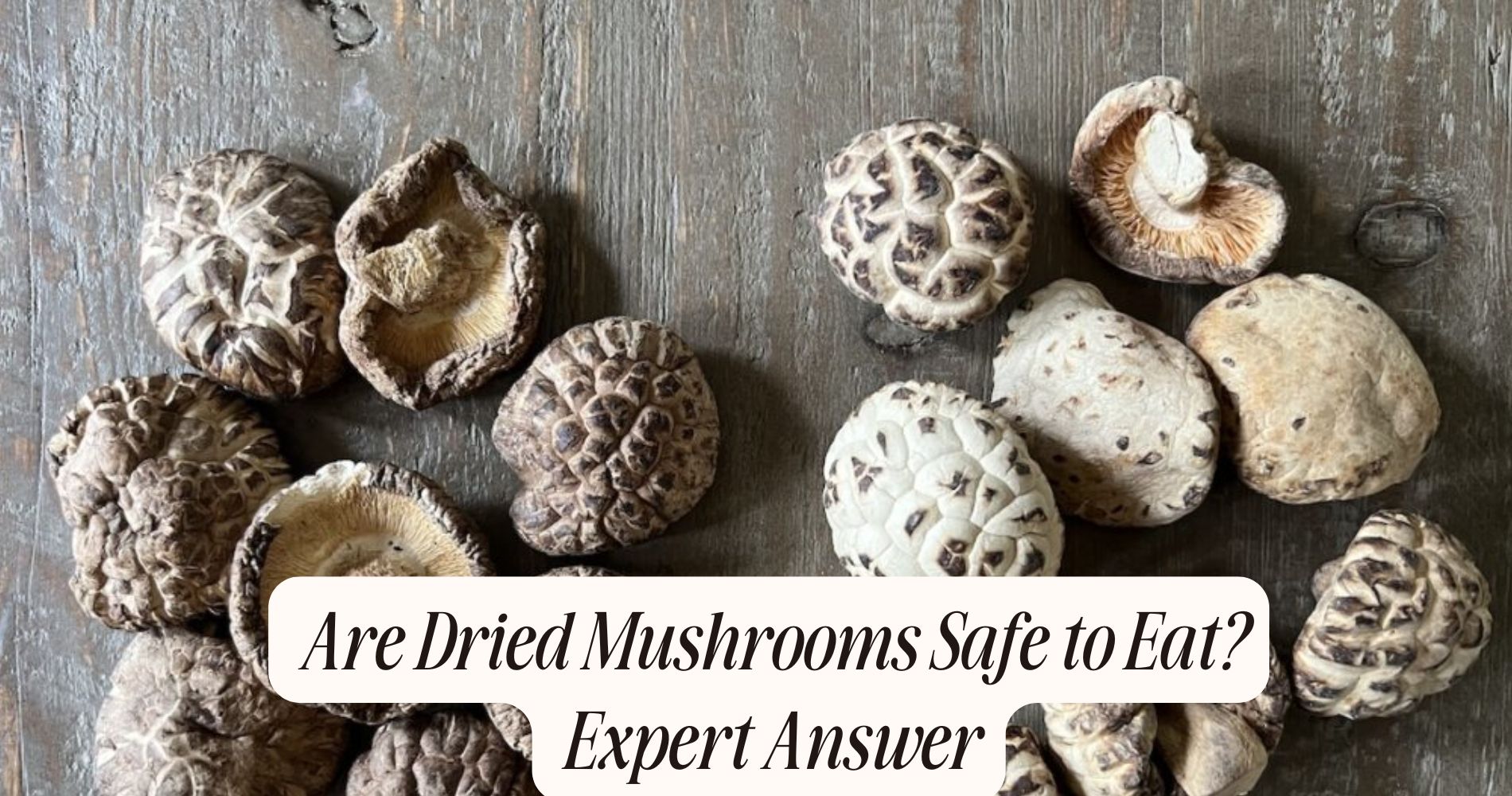
Why Do Mushrooms Hurt My Stomach? Causes & Solutions
Why do mushrooms hurt my stomach? If mushrooms hurt your stomach, it could be due to digestive sensitivities, toxins, or allergic reactions. Your body sometimes struggles to break down the complex carbohydrates and fibers in mushrooms, leading to bloating and discomfort. Eating too many at once can amplify these issues. Additionally, consuming mushrooms that contain toxins or resemble poisonous types can also cause gastrointestinal distress. To ease discomfort, try cooking them in ways that enhance digestibility, like sautéing or steaming. Gradually introducing mushrooms into your diet can help as well. There's more to discover about how to enjoy mushrooms without the pain.
Common Types of Mushrooms
When you think about mushrooms, several common types probably come to mind. You might picture the classic button mushroom, popular in salads and stir-fries. Then there are the robust portobello mushrooms, perfect for grilling or stuffing. If you enjoy a touch of sophistication, shiitake mushrooms are a favorite in Asian cuisine, adding a rich umami flavor to dishes.

It's essential to focus on edible varieties when exploring mushrooms. While many mushrooms are safe to eat, some can be toxic. For this reason, mushroom identification is vital. You should learn to recognize the distinguishing characteristics of each type. This involves examining features like color, size, shape, and gills.
If you're unsure about a mushroom, it's best to avoid it altogether. Foraging can be fun and rewarding, but it requires knowledge and caution. Always consult a reliable guide or expert if you want to venture into wild mushrooms.
Digestive Sensitivities
Digestive sensitivities can greatly impact your experience with mushrooms. If you've noticed discomfort after eating them, you might be dealing with a mushroom intolerance. This condition means your body struggles to break down certain components found in mushrooms, leading to symptoms like bloating, gas, or stomach pain.
Mushrooms contain complex carbohydrates and fibers that some people find hard to digest. If your digestive enzymes aren't functioning at their best, you might struggle with processing these elements, resulting in discomfort.
It's crucial to listen to your body; if mushrooms consistently upset your stomach, consider eliminating them from your diet. You can also try introducing mushrooms in smaller amounts to see how your body reacts.
Additionally, some individuals find that cooking mushrooms helps ease digestive issues. Cooking may break down some of the tough fibers, making them easier to digest.
If your symptoms persist even after adjusting your intake, consult with a healthcare professional. They can help you identify if you have a mushroom intolerance or another underlying issue affecting your digestion.
Preparation Methods
When you prepare mushrooms, the cooking techniques you choose can greatly affect their digestibility.
Proper cleaning and storage practices also play an essential role in preventing stomach discomfort.
Let's explore how these factors can impact your experience with mushrooms.
Cooking Techniques Impact
Cooking techniques play a crucial role in how mushrooms affect your stomach. For instance, sautéing benefits mushrooms by breaking down tough fibers, making them easier to digest. However, if your frying methods aren't careful, the added oils can lead to discomfort.
Grilling techniques can also enhance flavor but might create charring, which can irritate your digestive system. Boiling effects can leach out nutrients, but it may also soften the mushrooms considerably, making them gentler on your stomach.
Baking results in a different texture and can help retain moisture, possibly easing digestion. Steaming advantages include preserving nutrients while ensuring mushrooms stay tender and easier to digest.

When it comes to marinating flavors, using acidic ingredients can help break down tough cell walls, potentially making mushrooms more digestible. Roasting tips suggest using lower temperatures to avoid burning, which could lead to stomach irritation.
Each method can considerably alter how mushrooms affect your body, so it's crucial to evaluate your cooking techniques to minimize any discomfort. Experiment with these methods to find what works best for you!
Cleaning and Storage Practices
Proper cleaning and storage practices are essential for ensuring mushrooms remain safe and easy to digest.
Start by using effective cleaning techniques. Rinse your mushrooms gently under cold water to remove dirt and debris. Avoid soaking them, as mushrooms can absorb excess moisture, making them soggy and harder to digest. Instead, you can use a damp cloth or a soft brush to wipe them clean.
Once your mushrooms are clean, it's vital to follow proper storage guidelines. Store fresh mushrooms in a paper bag in the refrigerator, as this allows them to breathe while avoiding excess moisture. Avoid plastic bags, since they trap humidity and can lead to spoilage.
If you have leftover cooked mushrooms, let them cool before transferring them into an airtight container. They should be consumed within three to five days for best freshness.
Fungal Toxins
Understanding fungal toxins is essential for anyone interested in the safety of mushroom consumption. These toxins, often referred to as fungal metabolites, can lead to various gastrointestinal issues, including stomach pain.
While many mushrooms are safe to eat, some toxic varieties can produce harmful effects when ingested. When you consume mushrooms, you might unknowingly ingest these metabolites, which can cause nausea, vomiting, and abdominal discomfort.
It's vital to identify which mushrooms are safe and which are not. For instance, certain wild mushrooms can look similar to edible types but contain potent toxins that can wreak havoc on your digestive system.
To minimize the risk, always source your mushrooms from reputable suppliers and avoid foraging unless you're experienced in identifying safe species.
Cooking may reduce some toxins, but it doesn't eliminate all, especially from highly toxic varieties like the infamous Amanita phalloides, or the death cap mushroom.
Allergic Reactions
Mushrooms can trigger allergic reactions in some individuals, leading to symptoms like stomach pain, nausea, and digestive upset. If you have mushroom allergies, your immune system mistakenly identifies certain proteins in mushrooms as harmful. This immune response can result in various gastrointestinal issues, including cramping and bloating.
When you consume mushrooms, your body may release histamines and other chemicals to combat what it perceives as a threat. This reaction can manifest not only in your stomach but also through skin irritations or respiratory problems. If you suspect you have a mushroom allergy, it's important to pay attention to your body's signals after eating them.

Avoiding mushrooms is the most effective way to prevent allergic reactions. Always check ingredient lists when dining out or purchasing pre-packaged foods, as mushrooms can hide in unexpected places.
If your symptoms persist, consider consulting an allergist for testing. They can provide guidance on managing your allergy and may suggest alternatives to mushrooms that won't trigger your immune response. Taking these steps can help you enjoy meals without the worry of stomach pain or other allergic reactions.
Fiber Content
How often do you think about the fiber content in the foods you eat? If you're consuming mushrooms, it's worth considering. Different mushroom varieties can have varying amounts of fiber, which can impact your digestive health.
Fiber is essential for maintaining a healthy gut, but too much of it, especially if your body isn't used to it, can lead to stomach discomfort.
Mushrooms, like shiitake and portobello, are generally good fiber sources, but they contain both soluble and insoluble fiber. Soluble fiber can help manage cholesterol levels, while insoluble fiber aids in bowel regularity.
If you're not accustomed to a high-fiber diet, introducing these mushrooms suddenly might cause bloating or gas. To avoid discomfort, you might want to gradually increase your fiber intake. Pairing mushrooms with other fiber sources can help your digestive system adjust more smoothly.
Always listen to your body; if you notice consistent stomach issues after eating mushrooms, it might be time to reassess how often you include them in your meals. Understanding the fiber content in the foods you eat can help you make better dietary choices.
Cooking Techniques
When preparing mushrooms, the cooking techniques you choose can greatly affect their taste and digestibility. Sautéing mushrooms is one of the best methods to enhance their flavor while making them easier on your stomach. By cooking them quickly at high heat with a bit of oil, you help break down their cell walls, which can make them easier to digest.
Just be certain not to overcrowd the pan; this allows for even cooking and prevents steaming, which can lead to a rubbery texture.
Grilling mushrooms is another fantastic option. The direct heat caramelizes the natural sugars, giving them a rich, smoky flavor. Like sautéing, this technique also helps break down tough fibers, making them gentler on your stomach.
You can marinate the mushrooms before grilling to further enhance their taste and tenderness.
Regardless of the method, always clean your mushrooms thoroughly before cooking. This step guarantees that any dirt or contaminants don't contribute to stomach discomfort.
Overeating Mushrooms
Overindulging in mushrooms can lead to digestive discomfort for many people. While mushrooms are nutritious and delicious, consuming too much can overwhelm your stomach, especially if you're trying different mushroom varieties. Each type of mushroom has a unique composition, and some can be harder to digest than others. You might find that certain varieties, like shiitake or portobello, can cause bloating or gas if eaten in large quantities.

Portion control is key when enjoying mushrooms. Instead of piling your plate high, consider starting with a smaller serving. This allows you to monitor how your body reacts to the specific type of mushroom you're eating. If you notice discomfort, you can adjust your intake accordingly.
Remember, moderation is important, not just for mushrooms but for all foods.
If you love mushrooms and want to enjoy them without the stomach issues, try incorporating them into balanced meals rather than eating them alone. By being mindful of your portions and the mushroom varieties you choose, you can savor their flavors while keeping discomfort at bay.
Cross-Contamination Risks
While enjoying mushrooms in moderation is important, it's also essential to be aware of cross-contamination risks in the kitchen.
Cross-contamination can happen when raw mushrooms come into contact with other foods, especially meats or vegetables that haven't been washed properly. This can introduce harmful bacteria that might lead to stomach pain or foodborne illnesses.
Common cross-contamination sources include cutting boards, utensils, and surfaces that have been in contact with other raw ingredients. If you're not careful, you might unknowingly transfer these bacteria to your mushrooms.
To avoid these risks, implement effective prevention strategies.
Always wash your hands before and after handling food, and designate specific cutting boards for mushrooms to prevent cross-contamination with meat or other produce. Clean your utensils thoroughly between uses, and consider using separate sponges or cloths for different food types.
Solutions for Stomach Pain
If you're experiencing stomach pain after eating mushrooms, adjusting your diet might help.
Consider cooking methods that make mushrooms easier to digest, like sautéing or steaming.
You can also explore other dietary changes to see what works best for your stomach.
Dietary Adjustments
Sometimes, dietary adjustments can make a significant difference when you're dealing with stomach pain. If you've noticed discomfort after eating certain mushroom varieties, it might be time to reassess your diet. Certain types of mushrooms, like shiitake or portobello, may be harder to digest for some people. Consider eliminating these from your meals temporarily to see if your symptoms improve.
Pay attention to your dietary restrictions as well. If you have a sensitivity to specific carbohydrates, known as FODMAPs, certain mushrooms could aggravate your stomach issues. Opt for lower-FODMAP mushroom varieties, such as button mushrooms, which tend to be easier on the digestive system.
It's also wise to incorporate more easily digestible foods into your diet. Leafy greens, rice, and lean proteins can provide your body with the nutrients it needs without triggering discomfort.
Keeping a food diary may help you identify patterns between your meals and stomach pain, allowing you to make informed adjustments. Remember, everyone's body reacts differently, so listening to yours is key. Making these dietary changes can pave the way for a more comfortable experience when enjoying mushrooms.
Cooking Methods
Making dietary adjustments is just one part of managing stomach pain related to mushrooms; how you prepare them can also play a significant role. Using proper cooking methods can help reduce gastrointestinal discomfort. One effective approach is mastering sautéing techniques. Sautéing mushrooms quickly over high heat can break down their cell walls, making them easier for your stomach to digest.
Additionally, consider using mushroom marinades before cooking. Marinating mushrooms in a mixture of acidic ingredients, like vinegar or citrus juice, can help soften them and enhance flavor. This process can also aid in digestion, reducing the risk of stomach pain.
When preparing mushrooms, avoid heavy creams or excessively rich sauces, as these can add to your discomfort. Instead, try lighter options like olive oil and herbs for seasoning.
Remember to cook mushrooms thoroughly; undercooked mushrooms may be harder to digest.
Experimenting with different cooking methods will help you discover what works best for your body. By adopting these techniques, you can enjoy mushrooms without the associated stomach pain.
Gentle Wellness with SUPER MUSHROOM GUMMIES
If you've wondered, "Why do mushrooms hurt my stomach?" but still want to enjoy their incredible health benefits, Well Gummies' SUPER MUSHROOM GUMMIES offer a gentle solution. Each vegan gummy is crafted with 10 functional mushroom types, providing immune support, mental clarity, and sustained energy without upsetting your stomach. With a delicious fresh wild berry flavor, they’re as enjoyable as candy and easy to digest. Skip the discomfort and experience the benefits of mushrooms in a convenient, tummy-friendly form with SUPER MUSHROOM GUMMIES!
Frequently Asked Questions
Can Mushrooms Cause Food Poisoning Symptoms?
Yes, mushrooms can cause food poisoning symptoms. If you eat toxic varieties, your body might react negatively. You could experience digestive reactions like nausea or diarrhea, highlighting the importance of identifying safe mushrooms before consumption.
Are Certain Mushrooms Safer to Eat Than Others?
Yes, some mushrooms are definitely safer to eat than others. You should always choose well-known edible varieties, as mushroom toxicity can vary greatly. Research and proper identification are key to enjoying mushrooms without concern.
How Can I Tell if Mushrooms Are Spoiled?
To tell if mushrooms are spoiled, check for mushroom freshness indicators like sliminess, dark spots, or an off smell. If you notice these signs of spoilage, it's best to discard them for safety.
Do Mushrooms Interact With Any Medications?
Mushrooms can interact with certain medications, especially if you have mushroom allergies or experience digestive issues. It's crucial to consult your healthcare provider to guarantee mushrooms won't interfere with your treatment plan or worsen your symptoms.
Can I Eat Mushrooms if I Have IBS?
If you have IBS, you need to be cautious with mushrooms. They can be tough to digest and might trigger symptoms. It's best to monitor your reaction and consult your doctor for advice.
Conclusion
If mushrooms hurt your stomach, it's crucial to pinpoint the cause. Whether it's digestive sensitivities, toxins, or allergic reactions, knowing what affects you can help. Try different cooking techniques or avoid overeating, and always verify your mushrooms are fresh and properly prepared. If you suspect cross-contamination or continue to experience discomfort, consider consulting a healthcare professional. By taking these steps, you can enjoy mushrooms without the aftermath of stomach pain.




